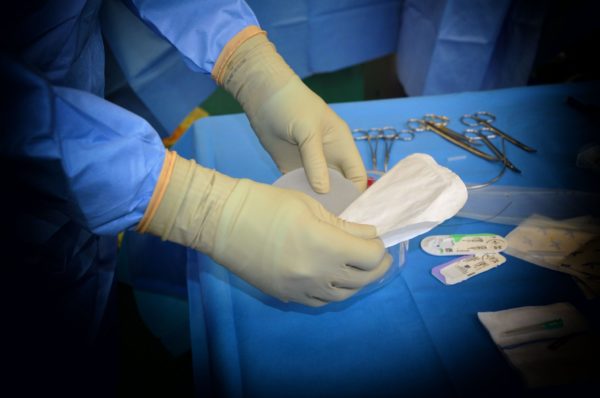Risky Drinking
You are engaging in “risky drinking” if you consume more than 2 units per day, or 14 units per week, before having surgery. Guidelines NHS
Limiting the amount of alcohol at least 2-8 weeks prior to surgery can help lower the risk of developing complications.
The most severe symptoms usually occur between two and five days after you stop drinking, which means that the first day or two may not be a good indicator of your risk of serious problems.
Do not drink any alcohol 24 hours before surgery and stop taking recreational drugs (this includes recreational smoking such as marijuana) as these may affect the anaesthetic.
Alcohol and Anaesthesia
Alcohol may impact the effect of anaesthetic medicines. Your liver produces alcohol dehydrogenase, a liver enzyme. The higher your alcohol consumption, the more enzyme produced. Anaesthesia drugs must also be metabolised by the liver and this enzyme can interfere with normal anaesthetic drug metabolism. This means your anaesthesiologist find it more difficult to estimate the correct doses needed for your comfort and safety.
Alcohol and Blood Clotting
Alcohol is a blood thinner and can affect your body’s ability to naturally clot blood, this may cause a delay in healing which can lead to infection, tissue death and long term problems.
Patients with unhealthy alcohol use, with or without alcohol withdrawal syndrome, have an elevated risk of alcohol-associated medical problems, which if present can contribute to complications in the perioperative period. Alcohol consumption may interact with perioperative medications (eg, anaesthetics, analgesics).
Patients suspected to have a physical dependence on alcohol should be treated prophylactically with benzodiazepines (or other agents) to prevent alcohol withdrawal symptoms and its associated complications and encouraged to participate in brief counselling or alcohol use disorder treatment, as appropriate.
Alcohol Withdrawal Syndrome
The current UK guidelines advise limiting alcohol intake to 14 units a week for women and men. This is equivalent to drinking no more than 6 pints of average-strength beer (4% ABV) or 7 medium-sized glasses of wine (175ml, 12% ABV) a week.
Excessive drinking or binge drinking, consuming multiple drinks during one occasion. For women, that’s four or more drinks and for men, it’s five or more at one time. Heavy drinking occurs when women have eight or more drinks a week and men have 15 or more drinks per week.
Common Withdrawal Symptoms
If you’ve been regularly drinking excessively and you stop drinking suddenly, you may experience one or more alcohol withdrawal symptoms. Though symptoms typically begin within eight hours after your last drink, you may not experience any until several days later. These symptoms tend to spike around 24 to 72 hours after your last drink, though milder ones may persist for several weeks or months in some people.
Mild to Moderate Symptoms
- Feeling anxious or nervous
- Feeling irritable
- Feeling depressed
- Feeling wiped out and tired
- Shakiness
- Mood swings
- Not being able to think clearly
- Having nightmares
- Dilated pupils
- Sweating
- Headache
- Difficulty sleeping
- Nausea and/or vomiting
- Appetite loss
- Faster heart rate
- Pale skin
- Tremor
If you have mild to moderate symptoms of alcohol withdrawal, your doctor may prescribe a sedative such as Ativan (lorazepam), Valium (diazepam), Klonopin (clonazepam), or Xanax (alprazolam) to help you get through the early days of withdrawal.
Severe Withdrawal Symptoms
One of the most severe symptoms of alcohol withdrawal is called delirium tremens, or “the DTs.”
About 3 percent to 5 percent of people who withdraw from heavy drinking experience delirium tremens. This condition can become fatal if it’s left untreated.
Symptoms of delirium tremens include:
- Fever
- Extreme agitation
- Seizures
- Extreme confusion
- Hallucinations (feeling, seeing, or hearing things that aren’t there)
- High blood pressure
If your symptoms are moderate to severe, you will likely need to stay in hospital so you can be monitored more closely. Your vital signs will be monitored, as will your blood chemical levels, and you may have intravenous (IV) fluids to prevent dehydration. Your doctor may also use the IV to give you medications like the sedatives listed above, to help you get through the symptoms of withdrawal or medications to stop seizures or treat other potential complications.
For optimum results following surgery; it is vital you inform your consultant and anaesthetist if you have experienced any mild, moderate or severe symptoms since you stopped consuming alcohol or any other substances.
If you do drink alcohol or take any other substances, prior to your surgery, you must advise your consultant and anaesthetist. This is essential to assess the risks and ensure extra precautions are in place if surgery still goes ahead as planned.




